Big Tech Faces Hearing Buzz Saw
The smarter way to stay on top of the multichannel video marketplace. Sign up below.
You are now subscribed
Your newsletter sign-up was successful
Even before the first Big Tech CEO took the virtual witness stand Wednesday (July 29), Rep. David Cicilline (D-R.I.), chairman of the House Antitrust Subcommittee, made it clear what the takeaway from its investigation into Big Tech and competition was: "They have too much power."
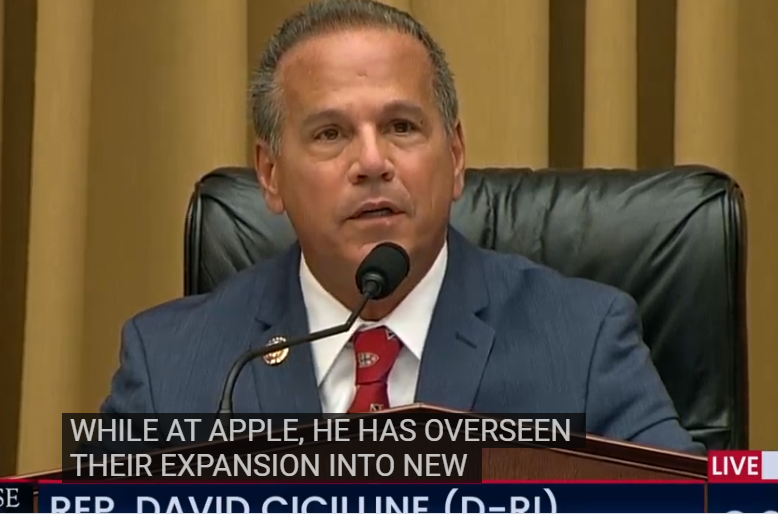
The hearing title did not bury the lead: "Examining the Dominance of Amazon, Apple, Facebook, and Google." Their dominance was presumed, leaving what, if anything, to do about it the question being probed.
Google was particularly in the line of fire.
Related: House Continues Deep Dive into Digital Antitrust and Big Tech
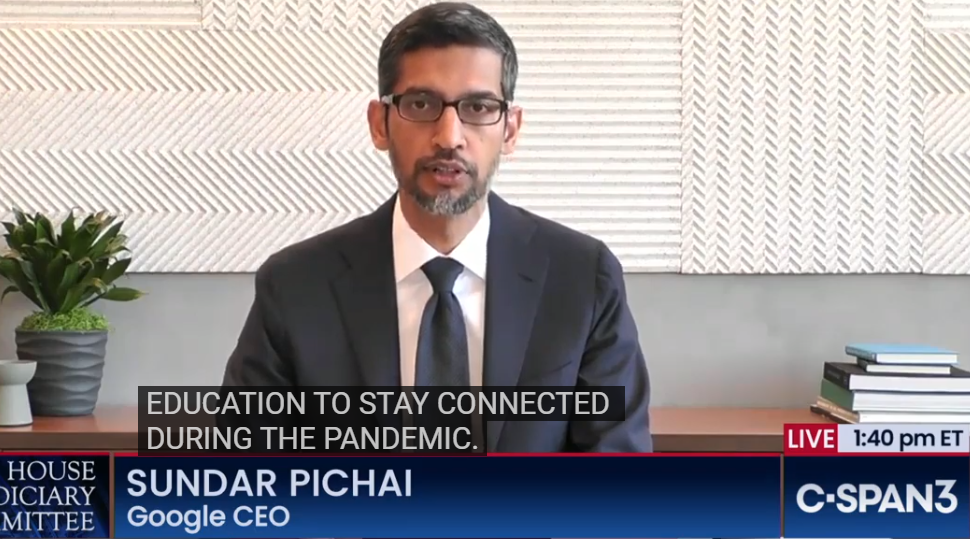
For his part, ranking member Rep. Jim Sensenbrenner (R-Wis.) said being big was not inherently bad. He said they were trying to better understand the companies role in the marketplace.
Sensenbrenner conceded dominance is ripe for abuse, particularly in the area of political debate, where there are reports of censoring conservative speech. He said being large and successful was not a problem, but how large and successful companies used their power could be. He said conservatives are consumers too, and need antitrust protection.
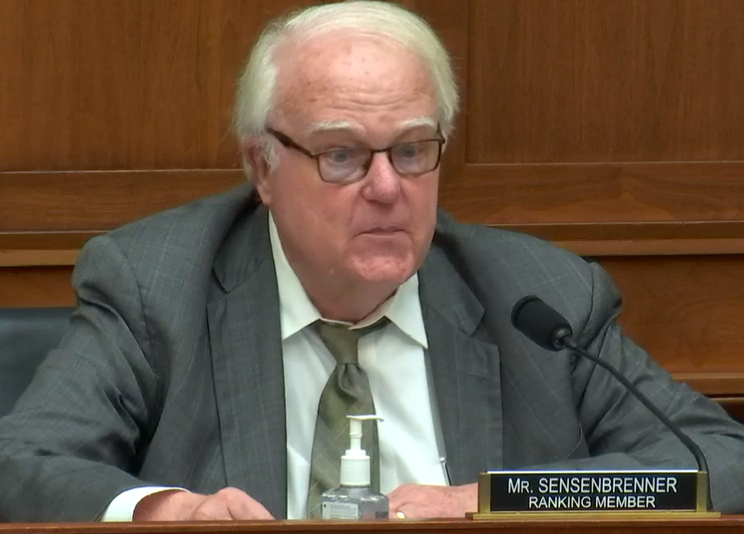
Cicciline appeared to have already gotten a handle on that the companies' role in the marketplace is.
The smarter way to stay on top of the multichannel video marketplace. Sign up below.
He said the committee's investigation, including collecting millions of pages of documents, holding numerous hearings and briefings, a common pattern emerged. He said each is a bottleneck for a key distribution platform, that each had used their control over digital information to surveil other companies and buy, copy or cut off their rivals, and abused their control over current technology to extend their power, which they had wielded in destructive and harmful ways.
Republicans were clearly exercised over what the issue of censoring conservative speech.
Rep. Jim Jordan (R-Ohio), ranking member of the parent Judiciary Committee, said that censorship was not an allegation, but a fact. He said the excuse of "algorithmic error" doesn't wash. He said he had dozens of examples of such censorship, many from Twitter, which did not have a witness at a hearing. Jordan said Republicans had asked for one, but Democrats had declined to make the invitation.
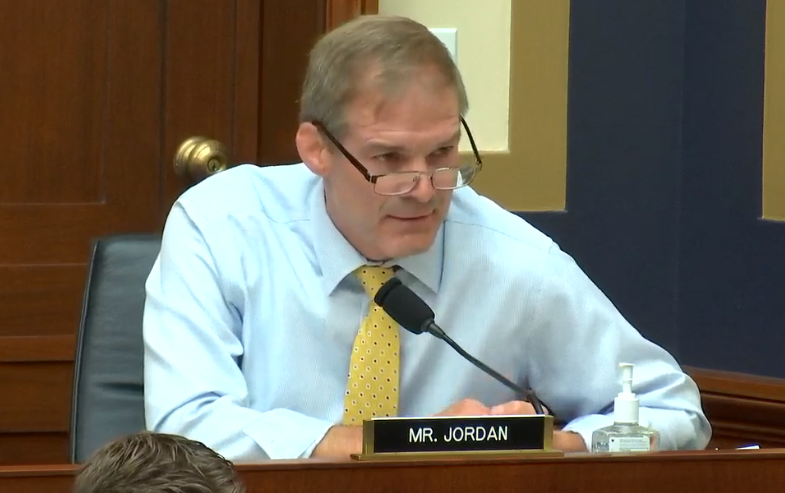
Jordan said the power those companies have during the upcoming election is "pretty darn important. " He said he loved free markets and American companies, but what wasn't great was censoring conservative speech.
There were some short tempers as a Republican request for a member to participate in the hearing was rebuffed and Cicciline called on members to wear masks at all times when not speaking.
Following opening statements, Cicilline asked why Google repeatedly stole content and favored its own sites. CEO Sundar Pichai said he did not agree with that characterization.
But Ciciline said the company had gone from a turnstile to a walled garden and that the evidence of Google's abuse of power was clear.
Rep. Jerrold Nadler (D-N.Y.), chairman of the Judiciary Committee, said Facebook documents told a disturbing story about how, fearing Instagram as a competitive threat, the company bought it to "neutralize it."
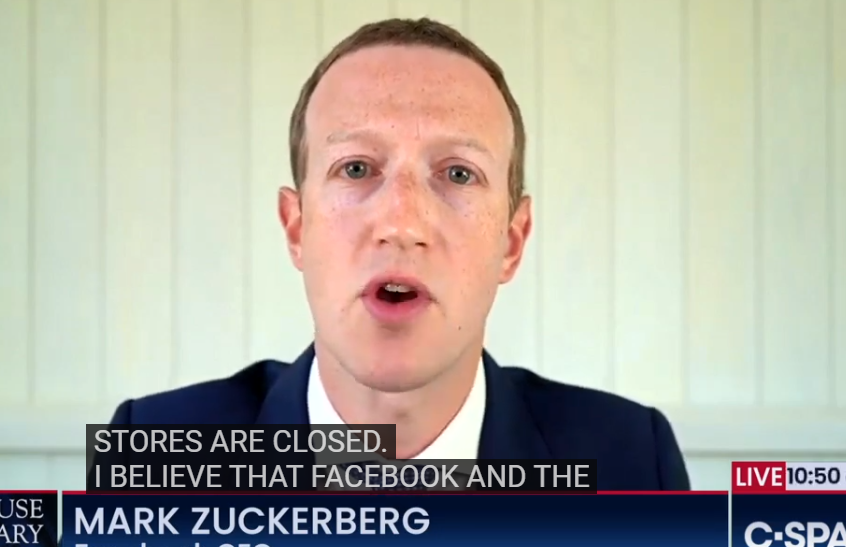
Facebook CEO Mark Zuckerberg said they had always considered Instagram as both a competitor--in mobile photo sharing--and a complement. He said they certainly went from being a competitor to an app that they could grown, and did to become wildly successful.
Zuckerberg said it was far from obvious at the time that Instagram would have succeeded without the acquisition.
Nalder said Facebook saw Instagram as a threat and bought it rather than compete. He said this is just the kind of thing the antitrust laws were meant to prevent, and must not be allowed to happen again.
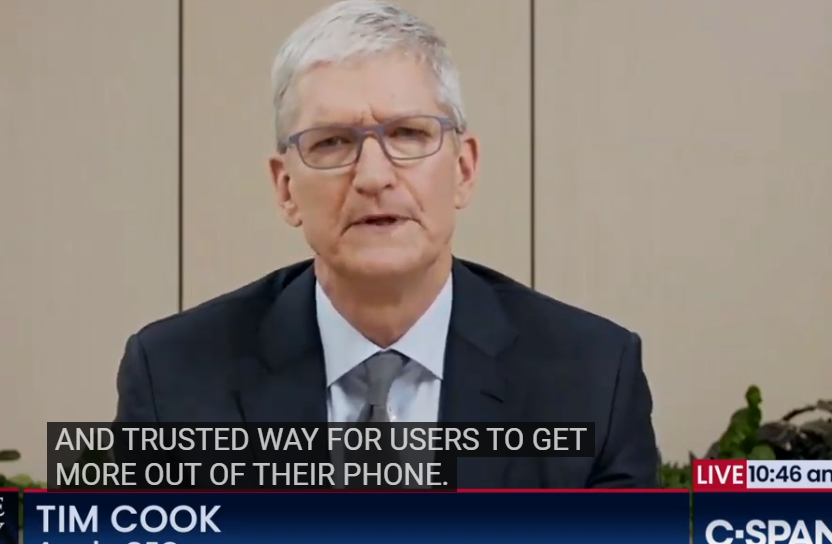
Rep. Hank Johnson (D-Ga.) said Apple's app store gave it great power as the sole decisionmaker about what apps get on the store. Apple CEO Tim Cook called the store "a feature of their phone."
Johnson said developers had complained about Apple's power over their apps and its discrmination against some developers. Cook countered that they treated app developers the same and applied its rules about apps evenly.
Cook said Apple does not discriminate against apps, but Johnson said he had heard differently, and that it had negotiated exceptions to its commissions for some developers.
Cook said Apple had never retaliated or bullied any developer who complained about the app store.
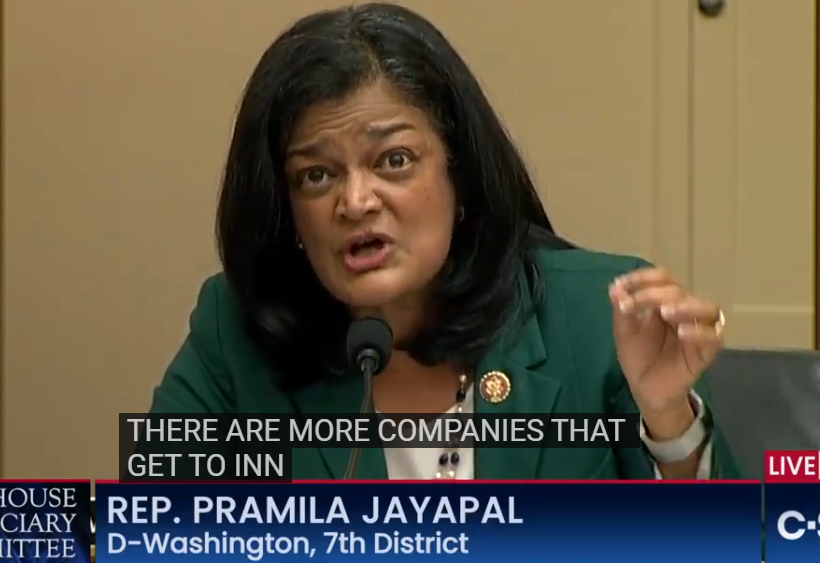
Rep. Pramila Jayapal (D-Wash.) pressed Amazon CEO Jeff Bezos on whether Amazon acccesses and uses third-party seller data when creating its own private brands, and said a "yes" or "no" answer would suffice. Bezos said he could not confine it to that, that Amazon has a policy against using "seller-specific data to aid our private label business," but said he could not guarantee that that policy had never been violated.
She cited an April Wall Street Journal article that found Amazon did access that seller info. Bezos did not deny the report, saying they continued to look into that.
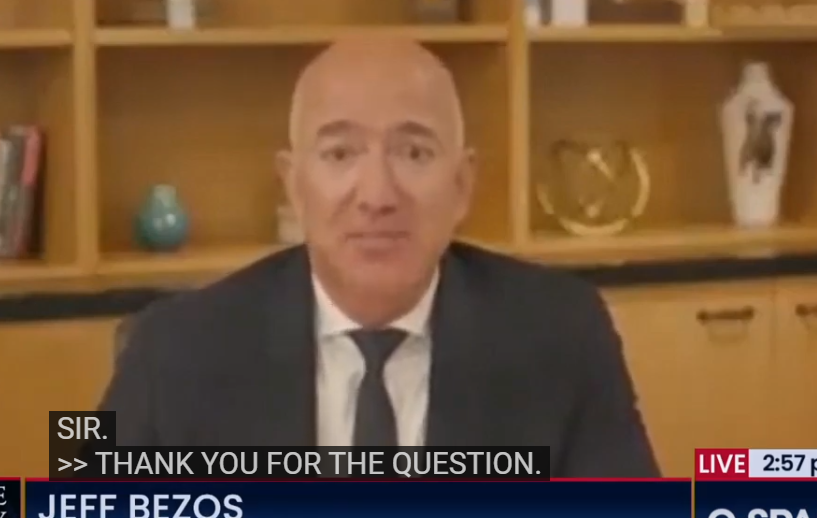
She said that the committee is concerned that given the amount of data Amazon has on third-party sellers, including pricing and inventory; given that it can track consumers habits; and given that it dictates the participation of third-party sellers, Amazon can dictate the rules of the game for competitiors, but does not have to follow them itself. She asked if that was fair to the mom and pop businesses that try to sell on its platform.
Bezos said he was proud of what Amazon has done giving access to third-party sellers. She responded that her point was that Amazon might allow third parties onto the platform, but that if it was continuously monitoring their data to make sure they are never going to get big enough to compete with you, that is the committee's concern.
Cicciline was not buying what Bezos was selling. "The evidence we have collected shows that Amazon is only interested in exploiting its monopoly power over the e-commerce marketplace to further its monopoly and protect its power. This investigation shows that Amazon's dual role as a platform operator and a competing seller on that platform is fundamentally anticompetitive and Congress must take action."
That could either be by changing the antitrust laws or perhaps breaking up the company.
Sensenbrenner suggested that Congress does "a poor job of picking winners and losers" and that he had seen the evidence from the investigation and had concluded antitrust laws don't need to be changed. He said the answer was in enforcement.
The subcommittee will publish a report of its findings and propose solutions, which Cicciline suggested could be breaking up some of the companies and certainly regulating them.
Contributing editor John Eggerton has been an editor and/or writer on media regulation, legislation and policy for over four decades, including covering the FCC, FTC, Congress, the major media trade associations, and the federal courts. In addition to Multichannel News and Broadcasting + Cable, his work has appeared in Radio World, TV Technology, TV Fax, This Week in Consumer Electronics, Variety and the Encyclopedia Britannica.

